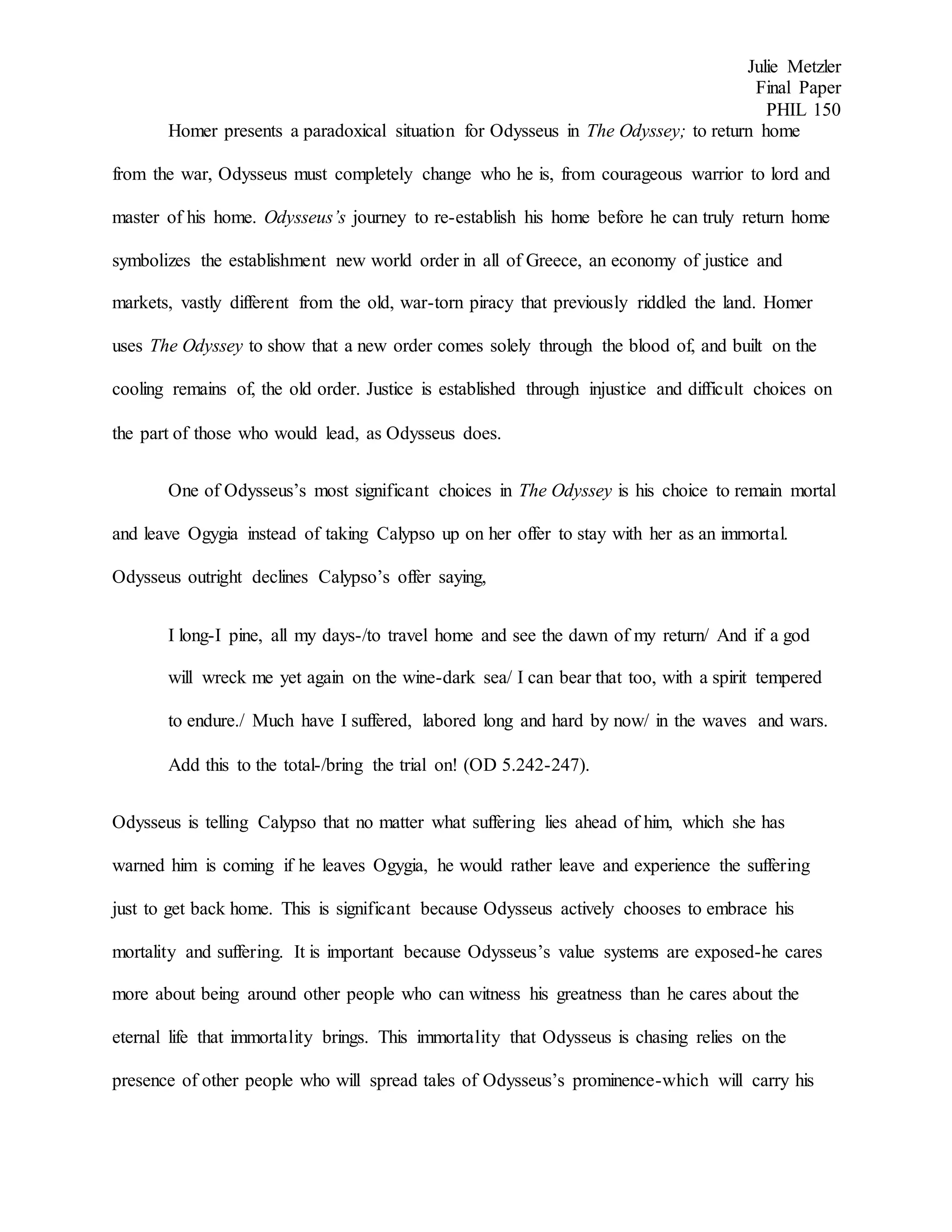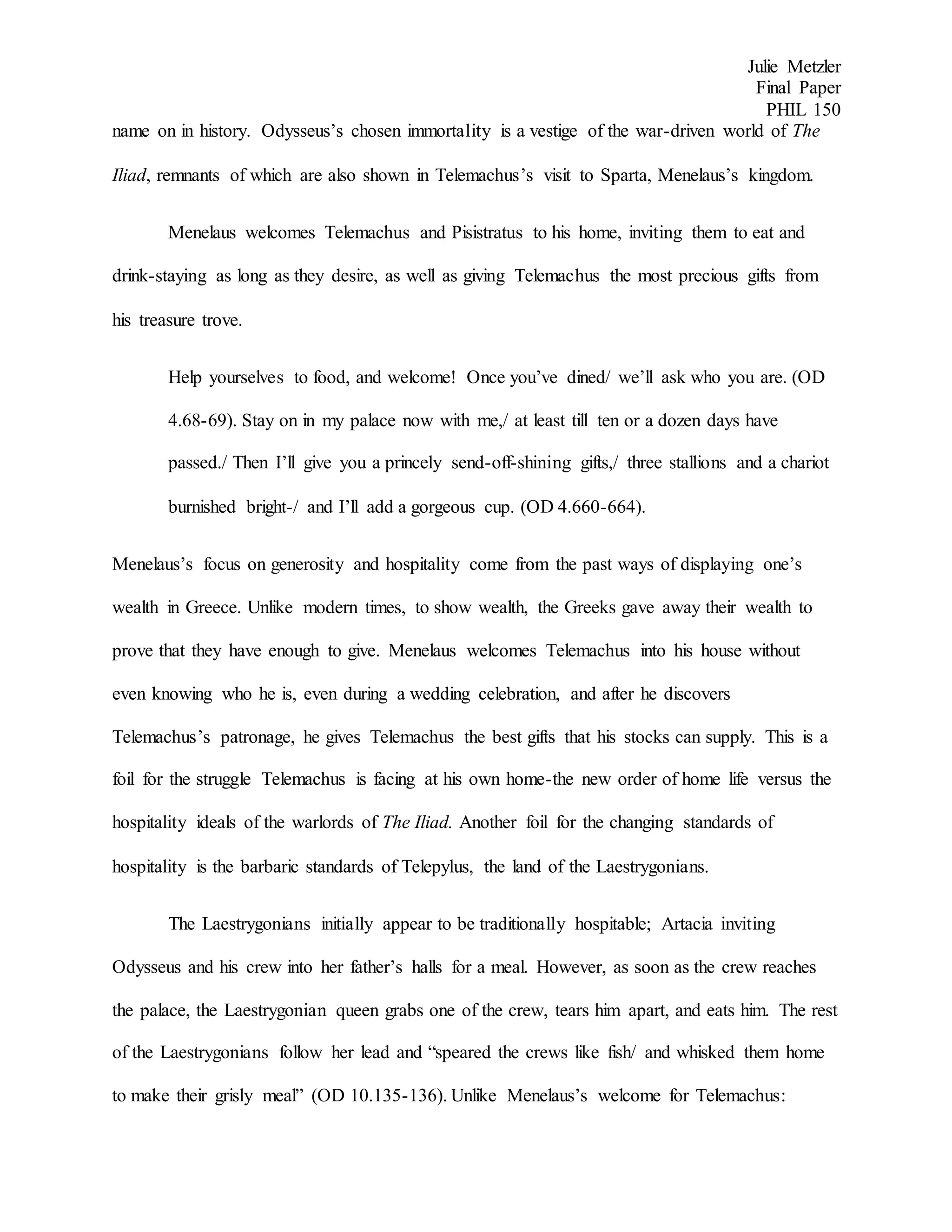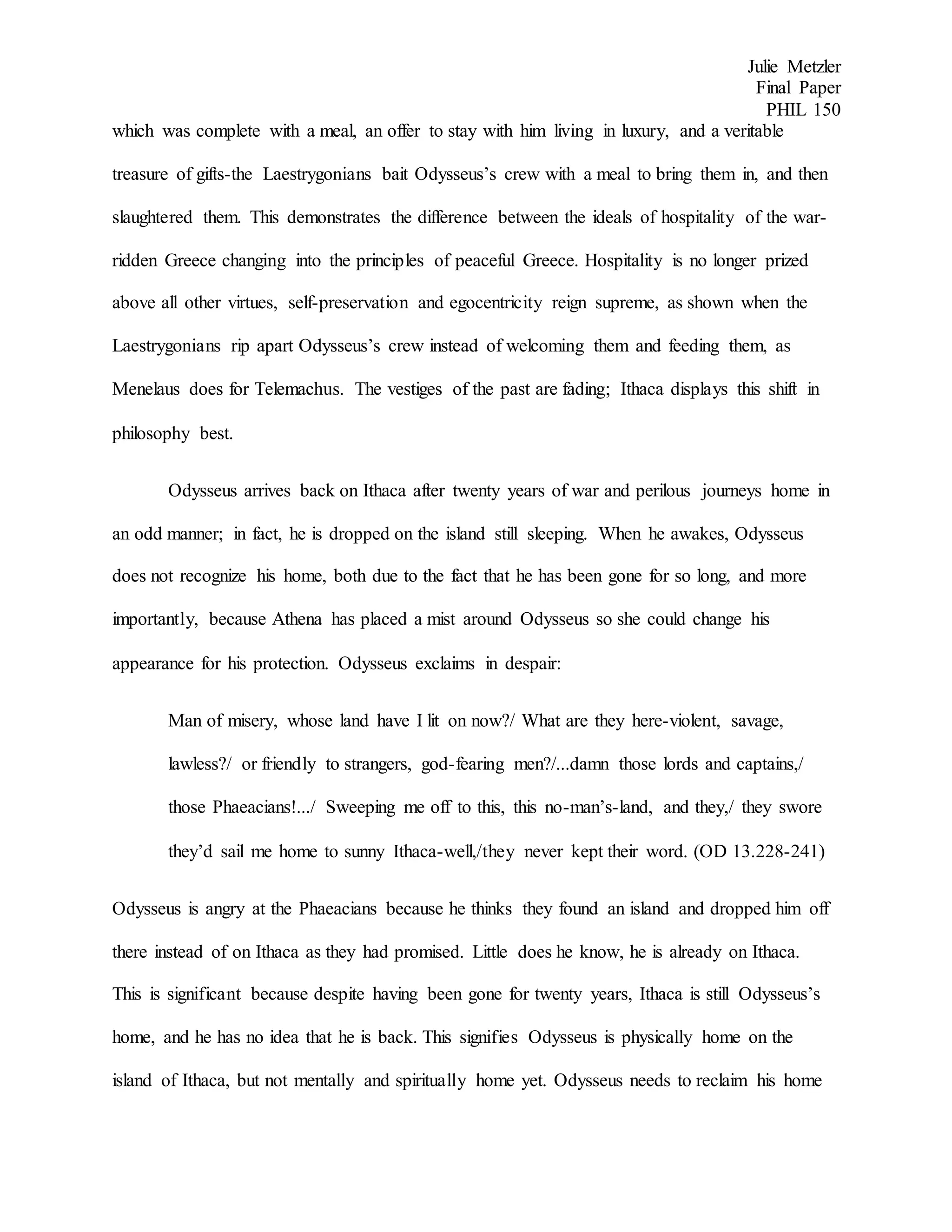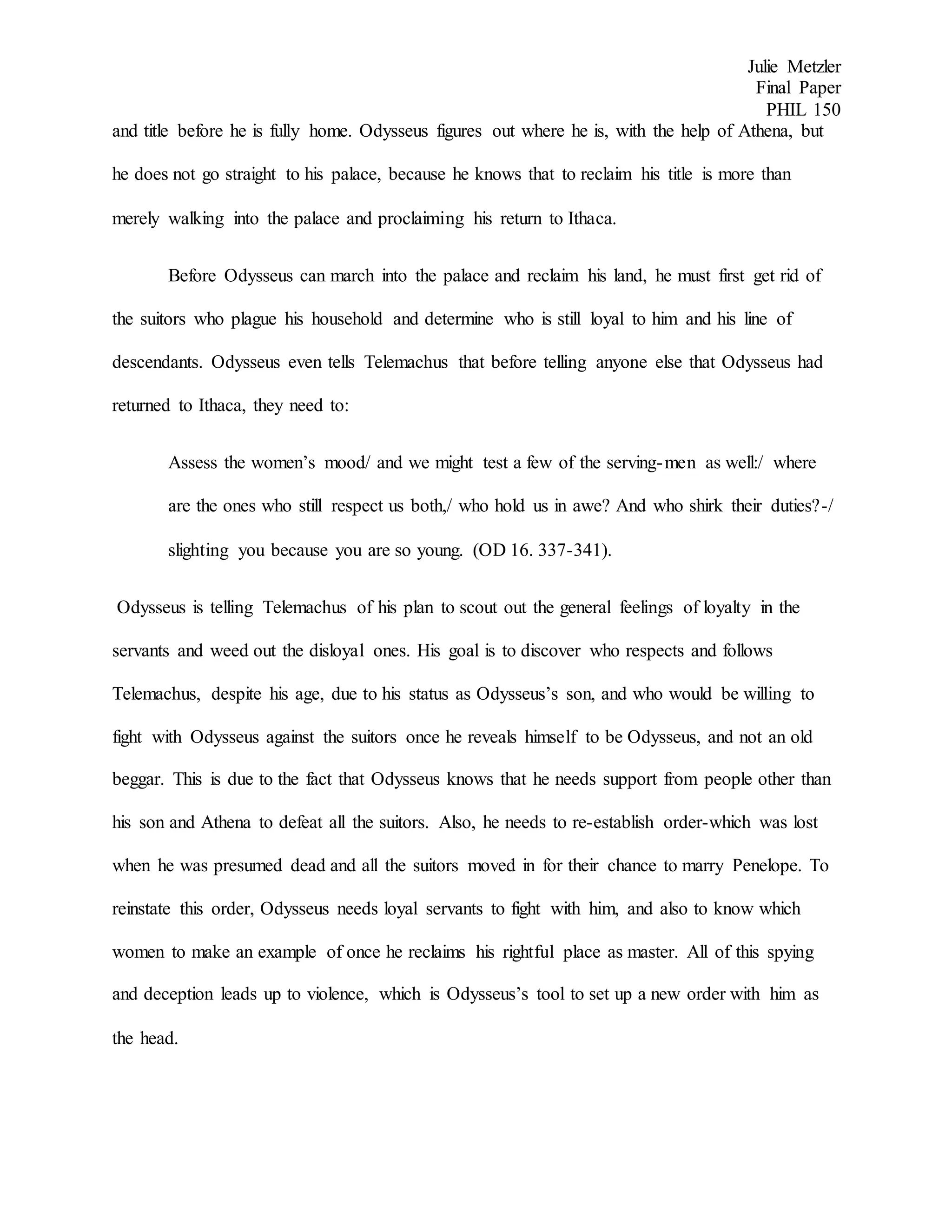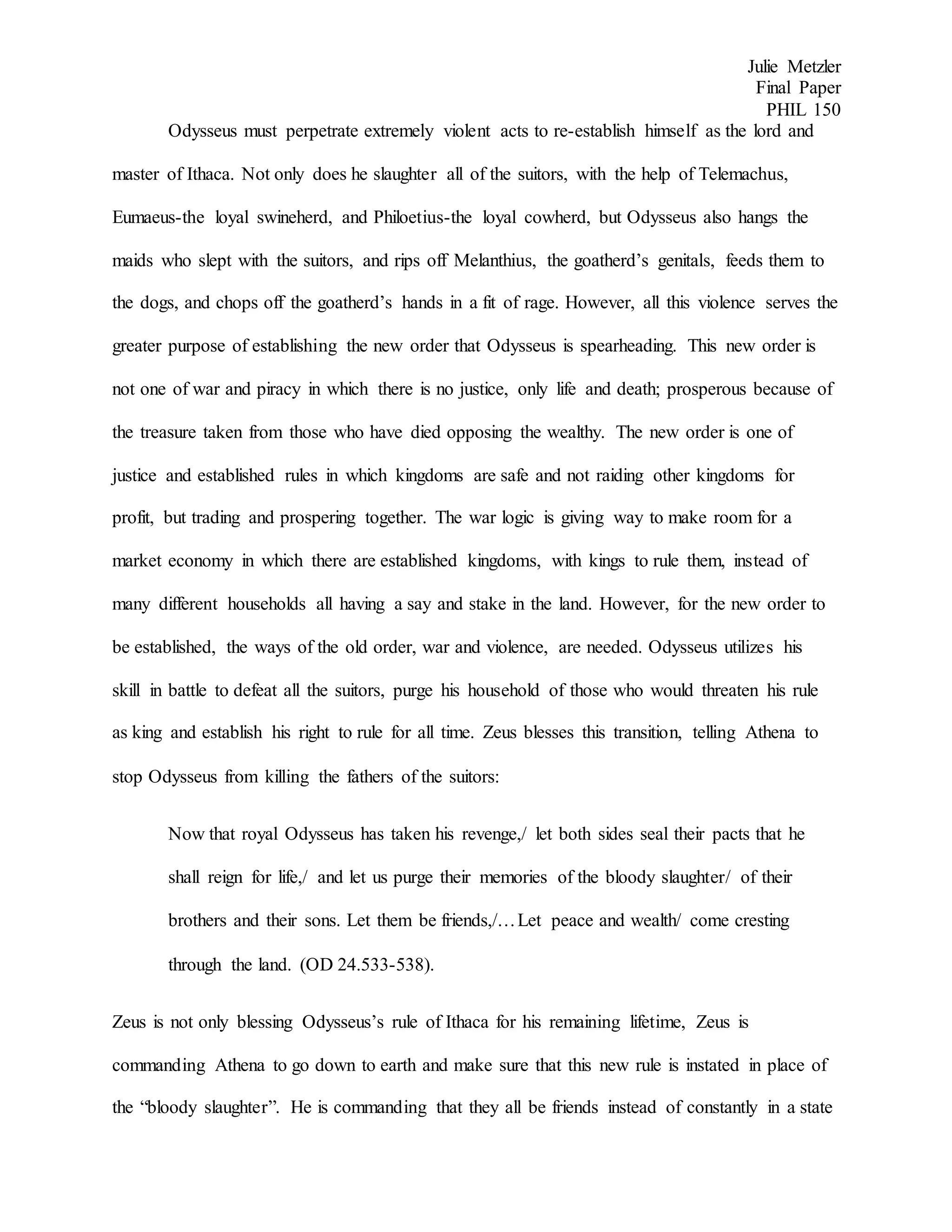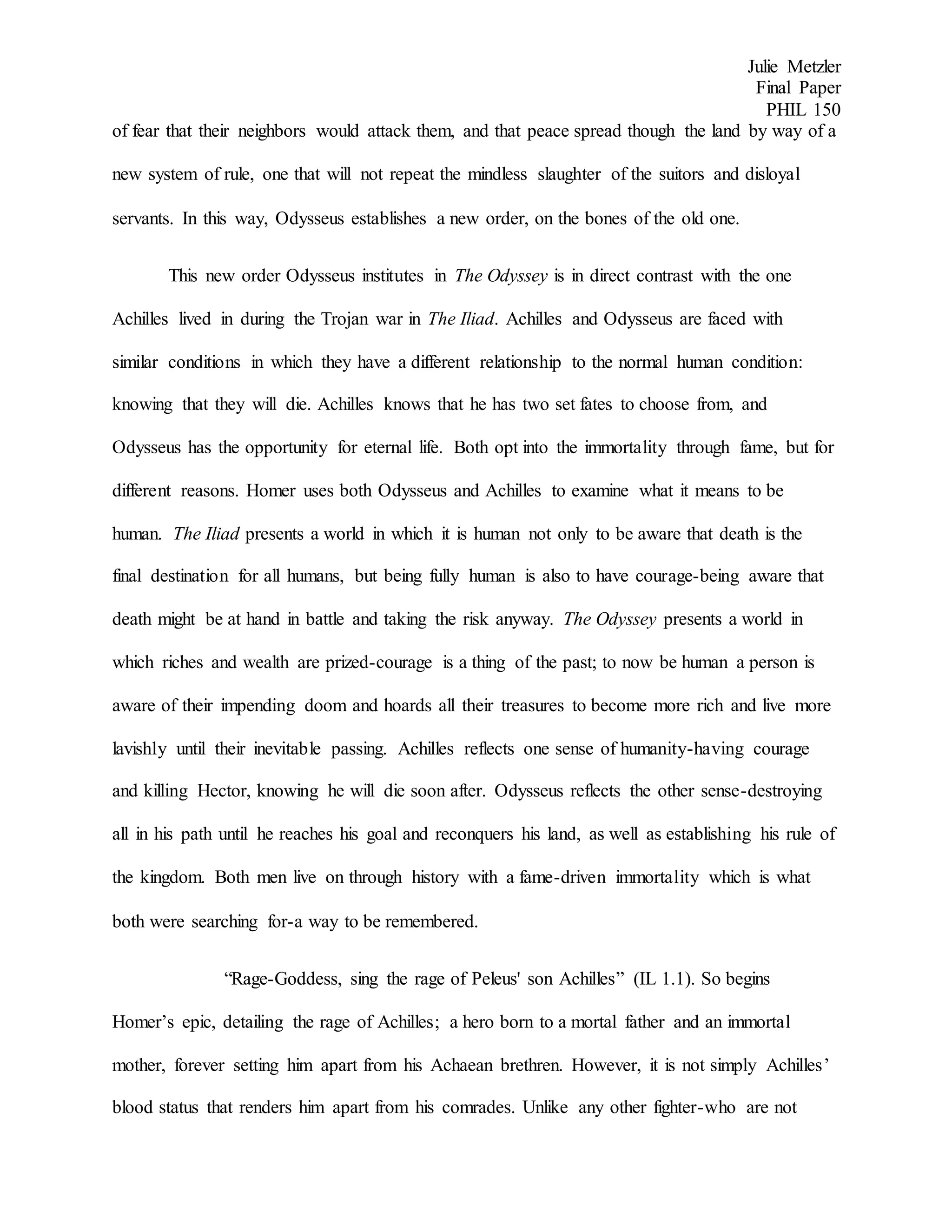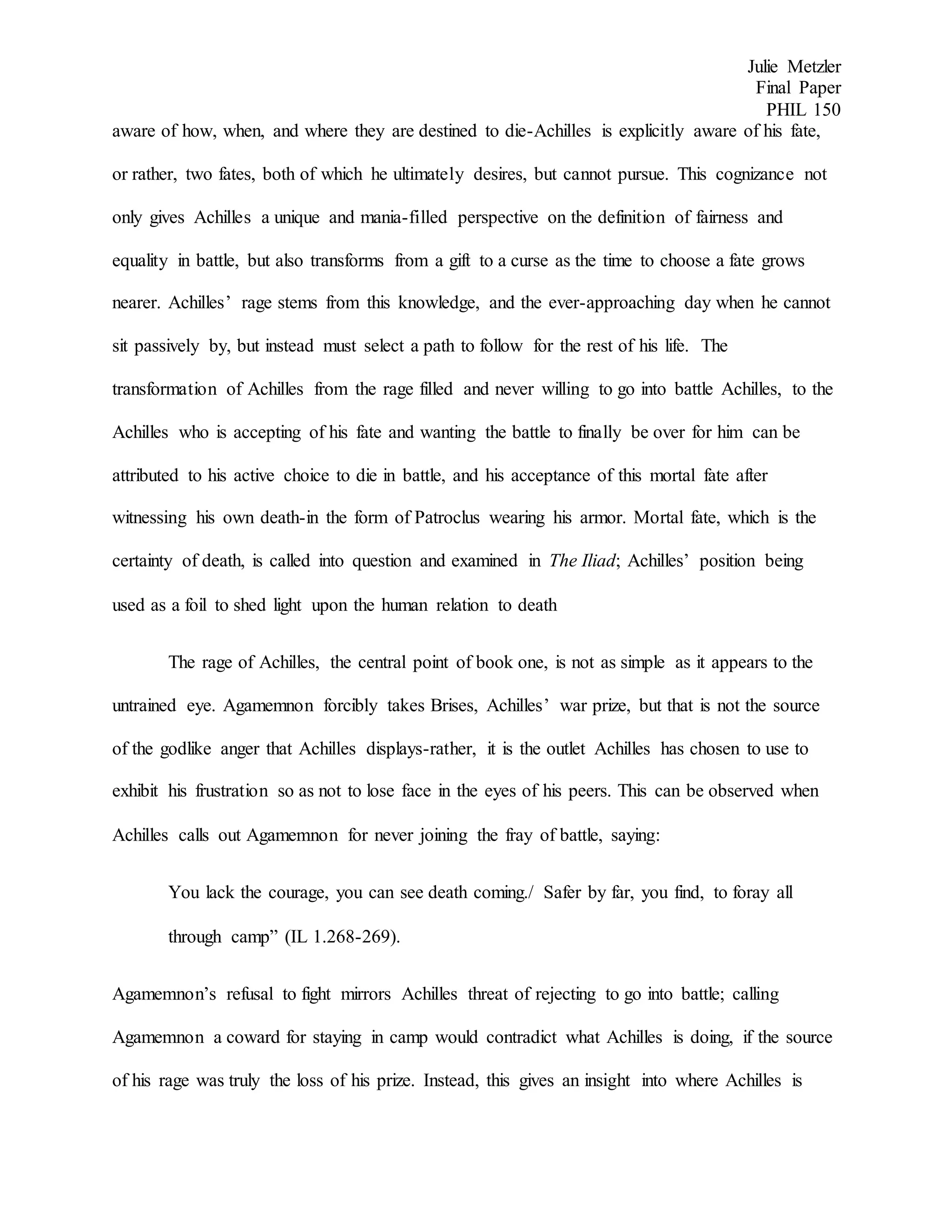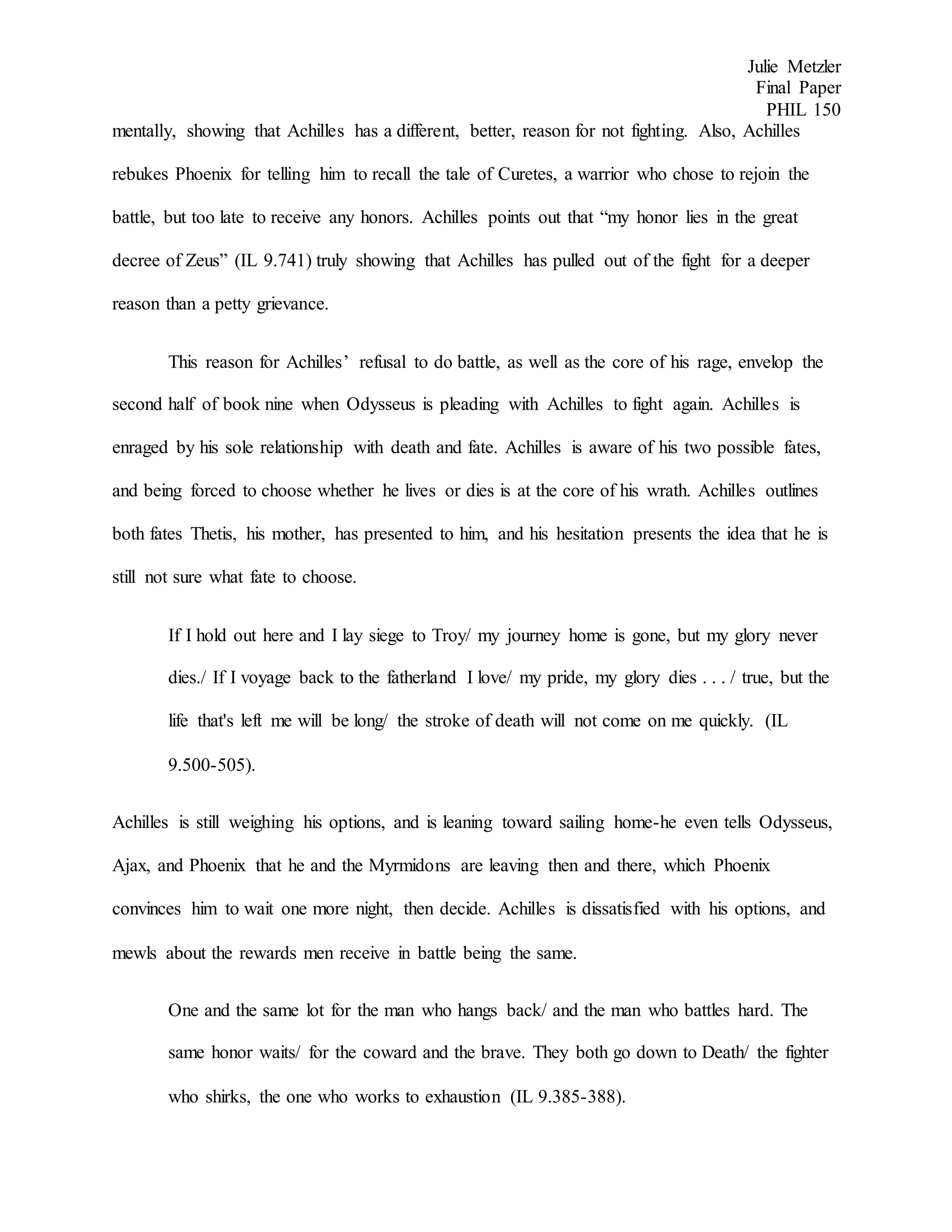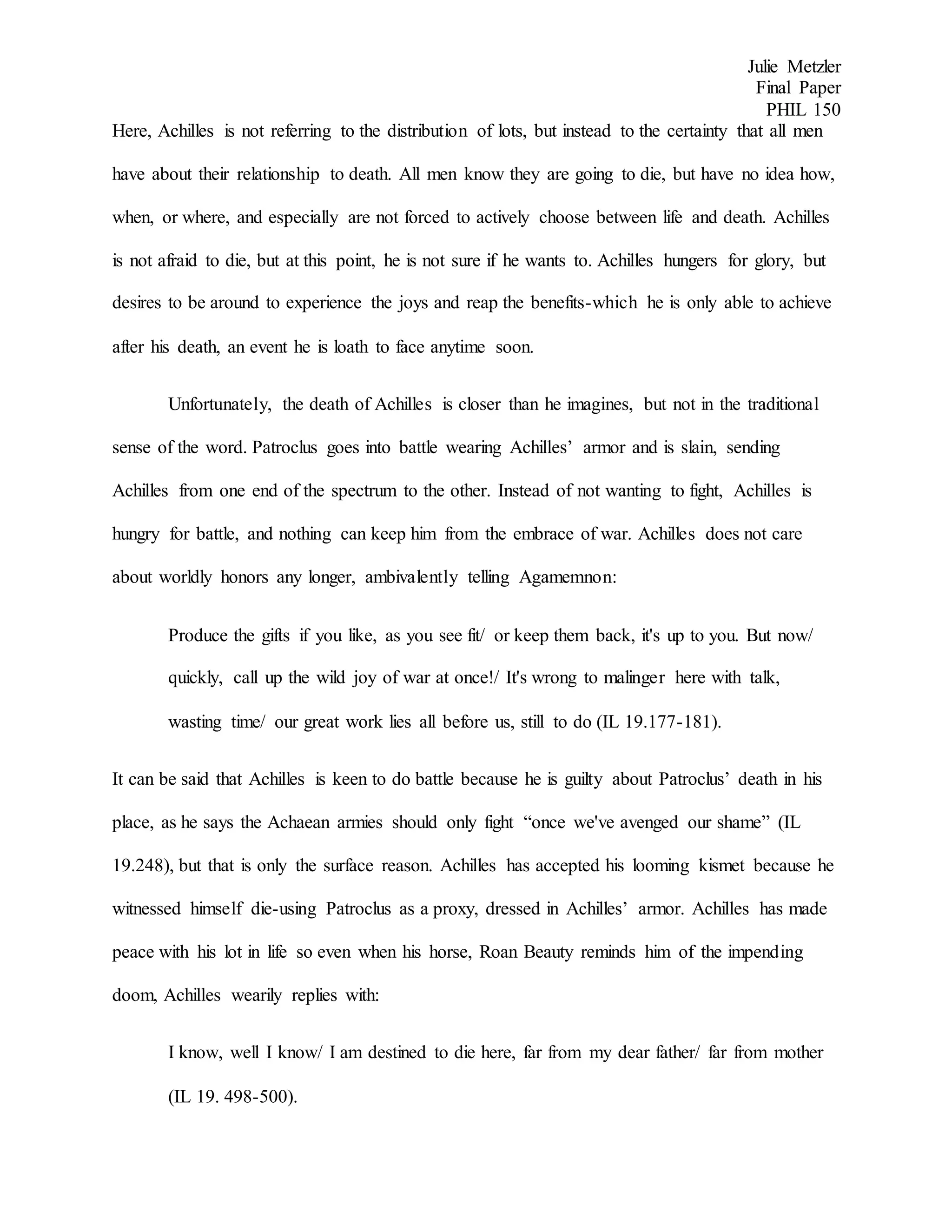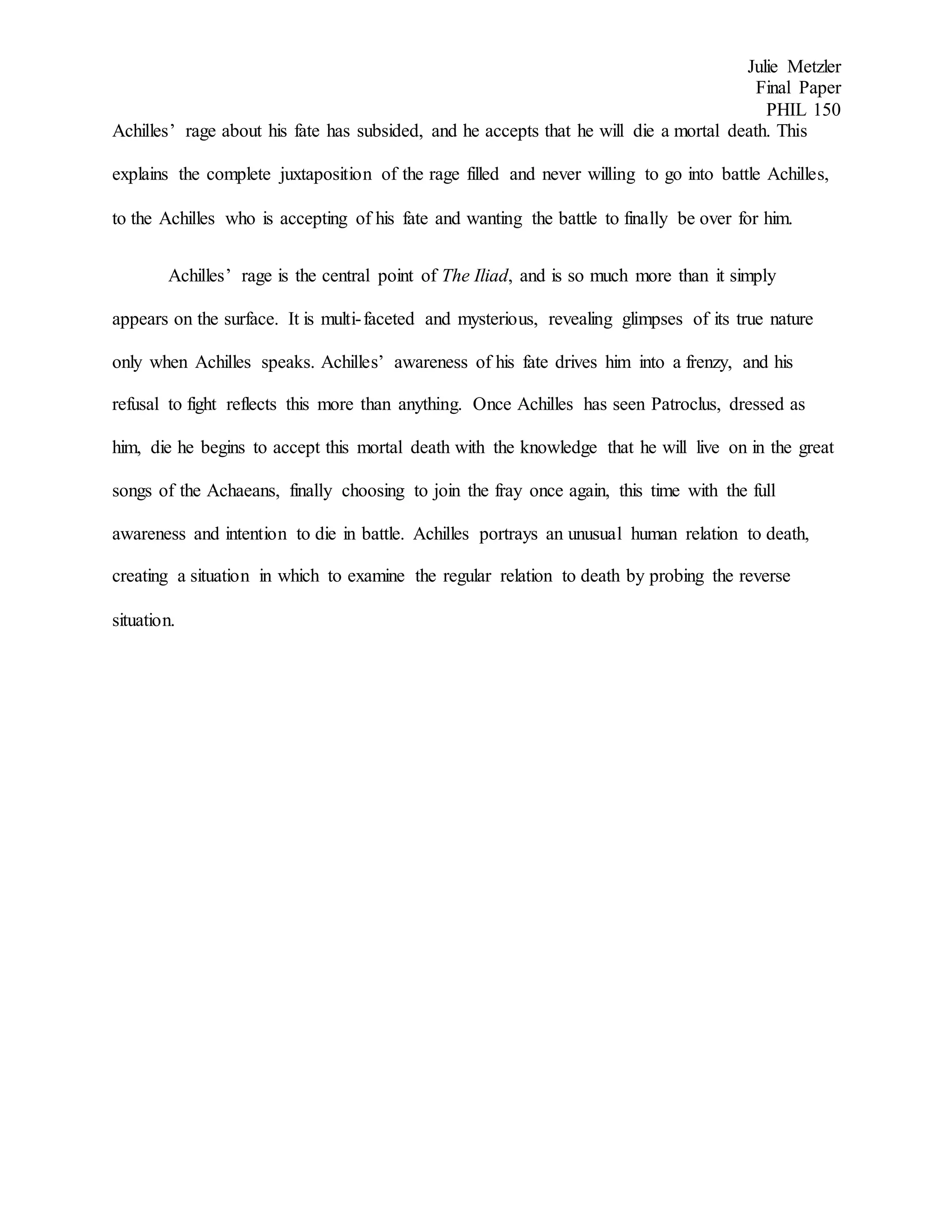This document analyzes Homer's Odyssey and how it depicts the transition from the old world order of war and piracy to a new order of justice and established economies. It argues that Odysseus must fully reclaim his identity as a warrior and master of his household in order to complete his journey home. His violent acts of slaughtering the suitors and disloyal servants serve to purge his household of threats and establish his rule, thereby spearheading the transition to the new just order blessed by Zeus.
